Nigeria
With just a few days to the festive season, Nigerians have one more thing to worry about, the soaring cost of commodities.
Nigerians are worried President Buhari has not delivered on his promise to fix the economy 19 months into his term.
Civil servant Victor Adinye lamented, “Everything has just skyrocketed in Christmas heavily. People are dying, things are … before now like this Christmas period you know, like commodities, bag of rice, oil, all these stuffs, we get them … like if you go for the best, for 9,000 or 10,000 naira ($29 or $32), but now 20 something thousand. Some bags of rice are 19 or 20,000 ($65). So it is just too expensive for the masses.”
Ayo Omope, a make up artist is equally frustrated.
“There is no job for us. I finished 2010 with my NYSC (National Youth Service Corps), I could not get a job but I had to help myself, I had to employ myself, I had to start hustle here and there. But now even the hustling is not even paying anymore. Before I used to believe I could stay in this country and make it, but now I feel like traveling abroad. “
The Nigerian economy slipped into recession for the first time in 25 years with inflation at an 11-year high of 18.3 percent.
Buhari’s government has blamed the country’s economic woes on the previous government’s failure to set money aside in the years when Nigeria’s crude oil fetched over $100 a barrel, before the price plunged in late 2014.
“I do regret voting for Buhari. We wanted a better economy and things are turning upside down, even worse than the way it was before. That is not the change we voted for, we wanted things to improve and it has not improved. Electricity, no water, imagine now people … common pure water, sachet pure water, they have striked. They want to increase the price of pure water”, said Dolapo Beckley, a baker.
Despite a 40 percent devaluation of the naira in June, a shortage of dollars persists, and they fetch a premium of up to 40 percent on the black market.
In Nigeria’s import-driven economy, this has pushed up the cost of everything from rice to spare parts.
Reuters




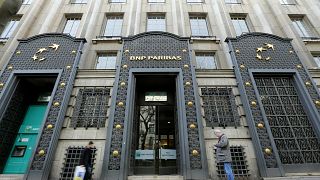
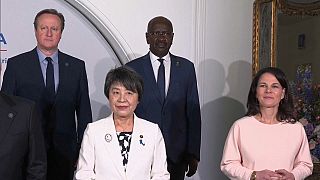
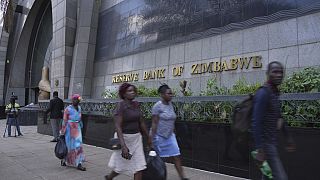
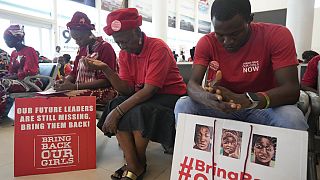


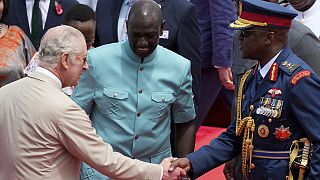


01:05
A Nigerian chess champion is trying to break the world record for the longest chess marathon
01:02
Pics of the day: April 15, 2024
02:24
Zimbabweans forced to use US dollar in absence of new currency ZiG
02:46
Nigeria: chibok abduction anniversary spurs demands for justice
00:50
Nigeria recovers millions in corruption probe at key ministry
02:41
Lagos marks 10th anniversary of chibok kidnapping